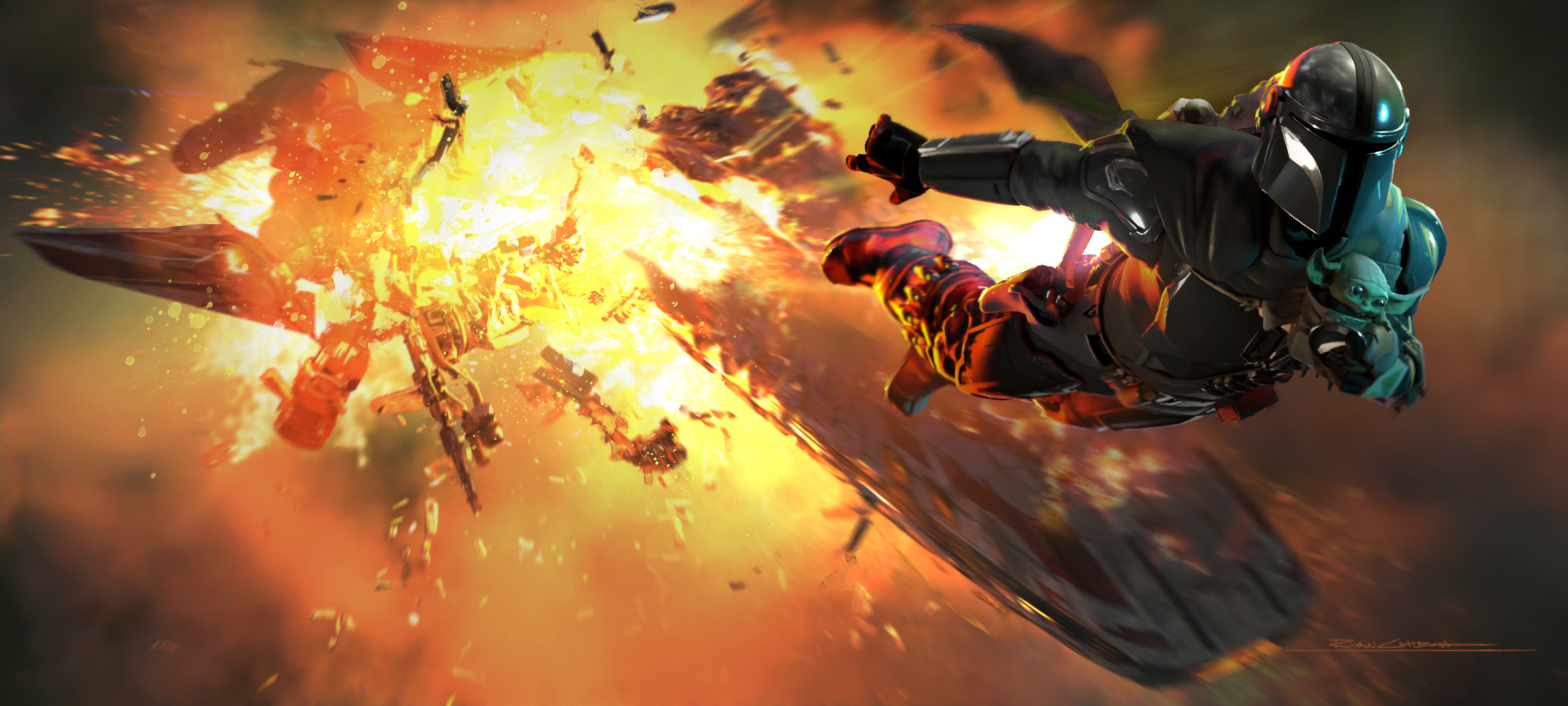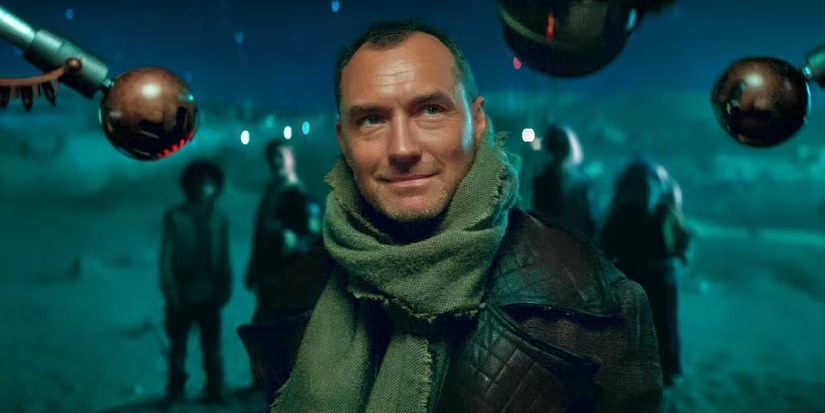
Way back in 2012 a major disturbance was felt in Hollywood, as George Lucas agreed to sell his companies to Disney for a cool $4 billion. The deal included LucasFilm itself, special effects house ILM, and major film and television properties, such as Star Wars and Indiana Jones. Fan reactions were immediate and intense; those who loved the original Star Wars trilogy were terrified about the corporate takeover and what it might mean for the future of the franchise, while those who hated Lucas’ prequel films were overjoyed and excited about the possibilities of new voices steering future films and series.
According to USA Today, Disney’s CEO Bob Iger issued the following remarks immediately after the sale:
“This is one of the great entertainment properties of all time, one of the best branded and one of the most valuable… Our long term plan is to release a new Star Wars feature film every two to three years, probably on a cadence of every other year and then go from there… The (first) film is in early stage development right now.”
Disney named veteran producer and LucasFilm co-chair, Kathleen Kennedy — a long-time Lucas ally — to run the organization. Five years on, the results have been something of a mixed bag. The box office revenues for recent Star Wars films and shows have been off-the-charts, but creatively many of these projects have been a mess (depending upon who you talk to and when).
Related – Mark Hamill Fundamentally Disagreed With Choices Made For Luke Skywalker
Several new Star Wars films and series are in various stages of development, including this fall’s The Last Jedi, Star Wars: Episode IX, an untitled Han Solo origin film, and several rumored anthology stories (Yoda, Boba Fett, Ben Kenobi, and even Jabba the Hut). However, we’ve also been hearing for a while now that the collaborative relationship between LucasFilm’s upper management and their hired filmmakers has been rocky (at best)… what’s unclear is why and what it all means.

Director Gareth Edwards sought to make Rogue One a sci-fi war film, but his vision was judged too dark.
A Series Of Unfortunate Decisions
J.J. Abrams’ The Force Awakens (2015) was the first Star Wars film released under Disney, and it seems to have as many fans as detractors. Abrams introduced several new characters, but he also recycled major plot points from the original Star Wars: A New Hope (1977), much to the frustration of many fans. However, the film earned a whopping $2 billion worldwide — nearly half the cost of the entire Disney acquisition — and the film was also intended as a jumping-on point for new audiences. The following year, Rogue One (2016), was released, which filled-in narrative gaps between Revenge of the Sith (2005) and Star Wars: A New Hope (the new film literally ends moments into the opening of A New Hope). Rogue One was also a massive success and generated an additional $1 billion worldwide. Two films in and $3 billion collected (to say nothing of revenues for toys, games, shirts, etc.). Not a bad start, right?
However, rumors of growing problems behind the scenes at LucasFilm were beginning to emerge.
One early sign of trouble came from George Lucas himself. Immediately after the acquisition, Kennedy stated that Lucas would be something of a franchise “godfather,” helping to map out future Star Wars films; Lucas even presented story treatments for a new trilogy. However, it’s apparent that plan went out the window almost immediately. Lucas told EW:
“They decided they didn’t want to use those stories, they decided they were gonna go do their own thing. They weren’t that keen to have me involved anyway.”
At the time, Lucas’ comments seemed bizarre and out of left field. It’s certainly not what fans wanted to hear. A few months later Kennedy shared her side of it, in an interview with SlashFilm:
“There are certain things [J.J. Abrams] retained and obviously everything George created, you can imagine, every single person involved in this process hugely respects and wanted to know as much as they possibly could about the universe that he was describing. He had specific plot ideas that evolved… you bring writers on and once the story starts to take shape, it evolves. George wasn’t a part of those development discussions, so it was a fairly natural process of evolution. It sounds like we ignored him but that’s not really what happened.”
And then, a few days before The Force Awakens hit theaters, Lucas punched back in a TV interview with Charlie Rose:
“They wanted to do a retro movie. I don’t like that. I like — every movie, I worked very hard to make them completely different, with different planets, with different spaceships — you know, to make it new.”
Ouch. It’s unclear if Lucas was upset with Kennedy, Abrams, Disney, or all three. But in that same Charlie Rose interview, Lucas half-jokingly refers to Disney as “white slavers,” though he later walked this remark back. However, Lucas’ comments mirrored those of many critics who found the retread elements a little too heavy-handed.
Star Wars creator George Lucas has made negative comments about LucasFilm’s creative choices.
A Helping Hand Or An Iron Fist?
Are these problems simply indicative of the creative process or something more? Several months ahead of Rogue One‘s release we learned that director Gareth Edwards was sidelined by industry vet, Tony Gilroy (The Bourne Legacy), who was brought in for major script re-writes and to conduct extensive reshoots late in production; Gilroy was also paid $5 million for his efforts. While it’s not uncommon for blockbusters to conduct extensive reshoots, it’s highly unusual to bring on another filmmaker at such a high rate of pay at the last moment. In 2015 Josh Trank (Chronicle) was hired and then soon resigned from the untitled Han Solo anthology film, which was passed on to new directing team, Lord and Miller (The LEGO Movie), who were themselves fired just recently, and finally just this week we learned that the director of Star Wars: Episode IX, Colin Trevorrow, is out too. Clearly, there’s something seriously wrong at LucasFilm.
While it’s reasonable to assume sour grapes with the Lucas transition, it’s not that easy to write off more recent events with Edwards, Trank, Lord and Miller, and Trevorrow. Although we’ve heard very few issues associated with Rian Johnson’s forthcoming The Last Jedi, let’s remember that it wasn’t until after Rogue One‘s release that we learned the really ugly stuff about that film’s production: changed endings, completely reshot scenes, and revised character motivations (and yes, we know there were early signs of trouble, but nothing like what was eventually revealed).
So what’s really going on at LucasFilm? From 30,000 feet, all signs point to heavy-handed management and personality conflicts. If true, you have to look at the person heading the organization, Kathleen Kennedy. Throughout all of the aforementioned problems, Kennedy and the deposed creative folks have each maintained positive spins regarding their various mishaps and break-ups, but it’s impossible to ignore the totality of what’s happened since 2012. Kennedy runs the show and bears responsibility for wins and losses, so it’s absolutely fair to assign blame her way.

Production on Rian Johnson’s The Last Jedi has had few reported problems (so far).
Doing The Same Thing Over And Over, And Expecting Different Results
However, to be fair to Kennedy for a moment, look at this from another point of view. LucasFilm has an incredibly challenging task in making these Star Wars films. They have to meet the expectations of at least three distinct audiences: fans of the original trilogy, fans of the prequels, and the current generation who are starting with The Force Awakens — that’s a really tough line to straddle. Cram too much new stuff into each film and you alienate the legacy fanbase, lean too far into nostalgia and everyone gives you crap for lazy storytelling.
At the same time, its entirely reasonable to point the finger back at the creative folks too. These are multi-billion dollar projects, as such lots of careers and investments hinge on each film’s success. So, you’re essentially making a Faustian bargain by signing onto these massive films, and it’s to be expected that corporate oversight will be intense — that doesn’t make it right, but it’s the reality in Hollywood.
Back to Kennedy. She’s ultimately the one making the call on scripts, hiring talent, and deciding when to yank chains during production. Consider that Edwards, Johnson, Trank, Lord and Miller, and Trevorrow were all relatively green before being hired onto their various Star Wars projects (each had only directed 2-3 features beforehand), and those hiring decisions fall directly at Kennedy’s feet. Obviously, we’re on the outside looking in, but there’s clearly something awry at LucasFilm and there’s no indication that it’s going to improve anytime soon, so long as status quo is maintained. Kennedy is an industry vet, and at the end of the day these films are making billions under her watch.
Conclusion
Overseeing each of these Star Wars projects is a massive, unyielding proposition potentially worth multiple billions of dollars. Managing a studio is also an incredible undertaking, particularly within a mega-conglomerate like Disney. Juggling business and creative responsibilities at the same time is hubris defined. What Kennedy really needs is a partner or a subordinate to share or delegate responsibilities, someone who knows the ins-and-outs of every corner of the Star Wars universe, someone akin to Geoff Johns or Kevin Feige who manages canon, production, and creative aspects while she manages the Disney relationship and runs the studio. This has worked out pretty well for Marvel and DC, and it’s shocking that there’s not an equivalent role at LucasFilm.
Given the string of unfortunate events on each of the Star Wars projects described above, Kennedy needs to make some kind of organizational and/or structural changes. There’s simply too much at stake for everyone involved, not the least of which are the fans themselves who pay to watch these films. A lot rides on who Kennedy hires to replace Treverrow, and the wrong choice could mark the end of her reign. Fortunately, a new chapter will be written in December when The Last Jedi hits theaters — hopefully it will be absent any significant outside drama, but then again, maybe this is the new normal for Star Wars fans.
What do you think is happening at LucasFilm and does it cause you concern about the future of the franchise? Let us know in the comments down below!
The Last Jedi hits theaters on December 15, 2017.
Don’t forget to share this post on your Facebook wall and with your Twitter followers! Just hit the buttons on the top of this page.
SOURCES: USA Today , Box Office Mojo , EW , SlashFilm , The Telegraph , Hulu , TheVerge , THR

 FOR FANBOYS, BY FANBOYS
Have you checked out LRM Online’s official podcasts and videos on The Genreverse Podcast Network? Available on YouTube and all your favorite podcast apps, This multimedia empire includes The Daily CoG, Breaking Geek Radio: The Podcast, GeekScholars Movie News, Anime-Versal Review Podcast, and our Star Wars dedicated podcast The Cantina. Check it out by listening on all your favorite podcast apps, or watching on YouTube!
Subscribe on: Apple Podcasts | Spotify | SoundCloud | Stitcher | Google Play
FOR FANBOYS, BY FANBOYS
Have you checked out LRM Online’s official podcasts and videos on The Genreverse Podcast Network? Available on YouTube and all your favorite podcast apps, This multimedia empire includes The Daily CoG, Breaking Geek Radio: The Podcast, GeekScholars Movie News, Anime-Versal Review Podcast, and our Star Wars dedicated podcast The Cantina. Check it out by listening on all your favorite podcast apps, or watching on YouTube!
Subscribe on: Apple Podcasts | Spotify | SoundCloud | Stitcher | Google Play



